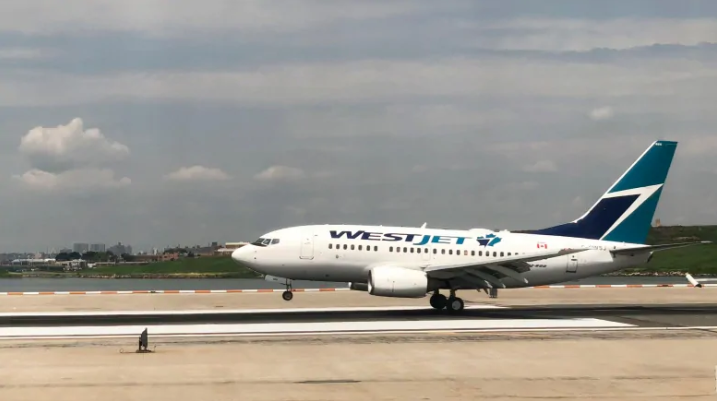
WestJet has announced that they will be using the Canada Emergency Wage Subsidy to bring back thousands of employees that were laid off as a result of the COVID-19 pandemic.
The Canadian airline company says it will bring back nearly 6,400 to the payroll using the announced 75% wage subsidy program.
According to the company, they will be rehiring workers at three-quarters of their previous wage once the federal government has approved it.
“This does not automatically mean that they will be coming back to work as there may not be work there for them,” CEO Ed Sims said in a video posted to Twitter Wednesday night.
The majority will likely stay home, as the airline has slashed domestic capacity and cancelled all transatlantic and US routes until May 4.
The 12-week program covers 75 percent of a worker’s salary or up to $847 per week at companies that have seen revenues drop off by at least 15 percent in March.
Air Canada made a similar announcement on Wednesday, stating it would use the federal program to bring back about 16,500 employees.
Last month, WestJet announced that 6,900 workers would leave the company – some temporarily and a smaller percentage via early retirements and resignations – with many of the remaining 7,100 employees taking reduced hours.
“I am grateful for the hard work of the government of Canada and for all governments across Canada to provide businesses like ours with the tools to continue operating through the most challenging of times,” Sims said in his video message.
The pandemic has devastated the travel industry, with airlines such as Porter Airlines and Air Transat halting all flights. International passenger arrivals at Canadian airports decreased by 96 percent year over year for the week starting March 30, despite thousands of travellers returning home on repatriation flights, according to the Canada Border Services Agency.
“This might be bizarre to hear an airline guy encourage people to stay at home, but by limiting our own travel we are protecting the safety of our nurses, doctors, orderlies and caregivers and are shorting the time we all need to spend in self-isolation,” added Sims.
Sims re-iterated that WestJet has every intention of continuing to operate in all 38 Canadian cities that they currently provide service.
“We will not ground this airline unless specifically instructed to by the government,” claimed Sims. “A stable network is the strongest platform from which to recover and rebuild and to keep Canadian airfares fair for many, many years.”
At some airlines, union members making minimum wage or close to it might opt to stay off the payroll, which would allow them to apply for the Canada Emergency Response Benefit (CERB) for people who’ve lost their jobs.
“Some may elect to take the CERB since it would offer them a greater benefit,” Hugh Pouliot, a spokesman for the Canadian Union of Public Employees (CUPE) said in an email Wednesday.
Under the wage subsidy program, workers are paid 75 percent of normal hourly wages or up to $847 per week. The emergency response program offers $500 per week to unemployed Canadians.
With files to Canadian Press



